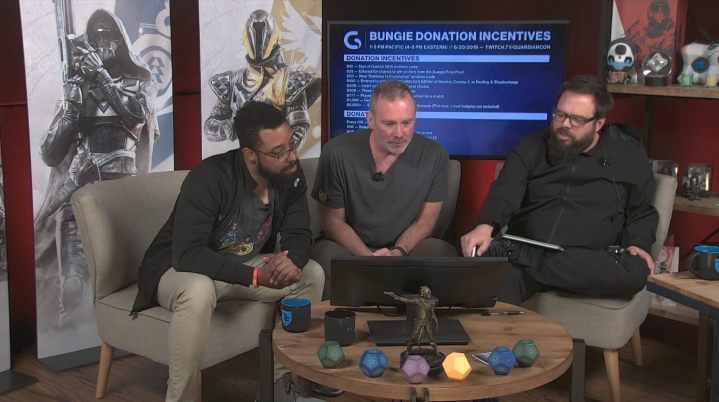
As video game publishers are increasingly exposed for poor work practices, companies looking to change the status quo have become more vocal about their efforts to avoid so-called “crunch,” which describes a situation where developers are pushed past reasonable expectations in order to meet deadlines. Bungie has now joined other companies in taking a stand against overworking developers. It recently shared in a livestream that the upcoming Destiny 2 patch would be taking a bit longer because the team wants to treat its developers better.
GamesIndustry.biz reported that a Bungie developer responded to a question about a patch for a weapon fix by sharing that it’s taking some time because the studio wants to preserve a good work-life balance for its employees.
“We could take the patch off the … off the ‘patch factory’, more or less, and ask people to work superlong [hours] and add this thing in,” he said. “We’re having the conversation about, is it worth doing that? Or is it worth preserving work-life balance and ship it later, in July?”
The developer even admitted that the team recently worked longer hours on a contest modifier for one of the Destiny 2 raids, and said they didn’t want to ask the team to do that back-to-back. That realization sullies the attempt to treat the developers better in this latest instance but, considering the many reports of crunch around the industry, this gradual shift is likely the reality for many studios aiming to make the change. Bungie parted ways with Activision recently and is able to make decisions like this without the pressure of a massive publisher bearing down on it.
Games that garner critical acclaim like Red Dead Redemption 2 have been reported to be created under crunch conditions. On the other end of the scale, Anthem has been critically panned, even though the team behind it reportedly suffered under the same conditions. Despite sporadic looks into efforts that provide better work experiences for game developers, it’s still necessary that other solutions be considered. Things like unionization could be analyzed so that better practices are implemented across the entire industry, as opposed to the infrequent occurrences that we’re currently seeing.



